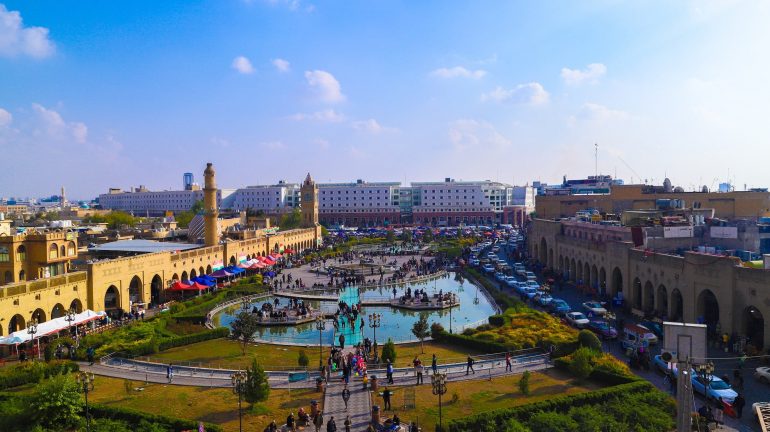Ongoing human rights issues in the Kurdistan Region remain a concern as NRT Kurdish journalist Hersh Qadir was briefly detained by Erbil security forces while reporting near Hamrin Bank today. He was later released but prevented from working in the area.
Qadir says the local militarized police affiliated with the Kurdistan Democratic Party (KDP), known as Zeravani, took him inside the bank to talk with officials. They warned against reporting near the bank and threatened equipment seizure. Coverage focused on alleged cash shortages for public sector salaries before Eid al-Fitr.
According to the Metro Center for Journalists’ Rights & Advocacy, security forces in Duhok Governorate detained journalist Omed Baroshki on Monday, April 17, 2023. Baroshki, previously detained in late 2020 and only released recently, has been a vocal critic of the KDP.
The unresolved cases of the “Badinan Detainees” have attracted international condemnation. Annual country reports by the US State Department and Amnesty International, as well as notable analysts and writers, including Winthrop Rodgers in his recent article for Foreign Policy Magazine, have raised concerns.
The Presidency has made several attempts to pardon activists due to negative domestic and international attention. However, Prime Minister Masrour Barzani effectively controls security-related issues in Duhok Governorate. President Nechirvan Barzani’s influence has been limited since being replaced as PM, despite his position at the summit of Kurdistan’s governing structures.
Human rights violations in the Kurdistan Region of Iraq have increased over the years, as reported by Human Rights Watch. Incidents have also been growing in Erbil and Sulaymaniyah Governorates. Recently, a lawyer was kidnapped and beaten for representing a woman seeking separation from her husband in court.
Local media outlets reported the lawyer was humiliated, and footage showed signs of torture. This incident raises questions about the effectiveness of security measures in the area, where the KDP controls security forces.
Human rights issues extend beyond KDP-controlled areas. Sulaymaniyah has become increasingly authoritarian, particularly under PUK leader Bafel Talabani. This governance approach has begun to resemble KDP rule in Erbil and Duhok Governorates, with political rivals facing escalating crackdowns.
Civilian political figures and PUK members affiliated with Lahur Sheikh Jangi have also reported instances of humiliation and harassment. Human Rights Watch and France 24 reported a violent crackdown on anti-government protests in the city last year in August.
The New Generation Movement, currently the largest opposition in the Kurdistan Region of Iraq, organized the protests. They demanded better living conditions from the government and firm dates for regional elections.


